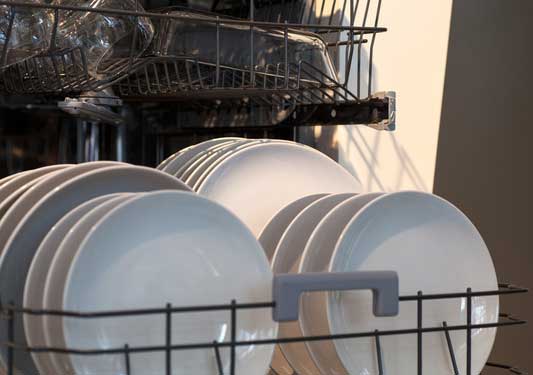Without question, a dishwasher saves both time and effort. However, unless properly installed and maintained, it will not operate at maximum performance. The first step involves choosing the right dishwasher, preferably one that has the Energy Star certification.
Installation
While some homeowners have the skills needed to properly install a dishwasher, this job is typically best left to a professional plumber. After all, sometimes an old dishwasher comes out and a new one is installed without a hitch, but other times unforeseen problems arise.
A licensed plumber will turn off the electricity to the kitchen at the breaker box, install the new dishwasher, ensure it is completely level and secure, and then run a complete cycle prior to leaving to make sure there are no leaks or other issues. Most plumbers also remove the old dishwasher at no additional cost.
Proper Cleaning
A new dishwasher will come with manufacturer’s instructions on how to properly clean and maintain it. By following a few simple steps, dishes will be cleaner. In addition, the life of the dishwasher will be extended. Examples of cleaning steps include:
- Wipe out the gasket every two to three days.
- If possible, pull out the trap to clean it.
- As needed, clear the nozzles located on the spinner arms.
- Remove filters and rinse them with warm water and a soft brush when needed. Unless the dishwasher is self-cleaning, this should be done once or twice each month.
- For homes with hard water, a high-quality product that removes lime scale designed specifically for dishwashers should be used monthly.
Things to Avoid
To help your dishwasher run smoothly, there are a few steps you can take. For instance, prior to starting a load of dishes, clear out the pipes by running the garbage disposal for about 30 seconds. In addition, you can run water in the sink until it becomes hot. By doing this, the dishwasher water will start hot.
There are also things to avoid with your new dishwasher:
- Never load dishes caked with large food particles.
- Never use liquid dish soap formulated for hand washing dishes in a dishwasher.
- While vinegar and bleach can be used occasionally and in small amounts for cleaning, too much will produce toxic fumes and erode the seal on the interior of the door.
- Never run a partial load, as this wastes both water and energy.




